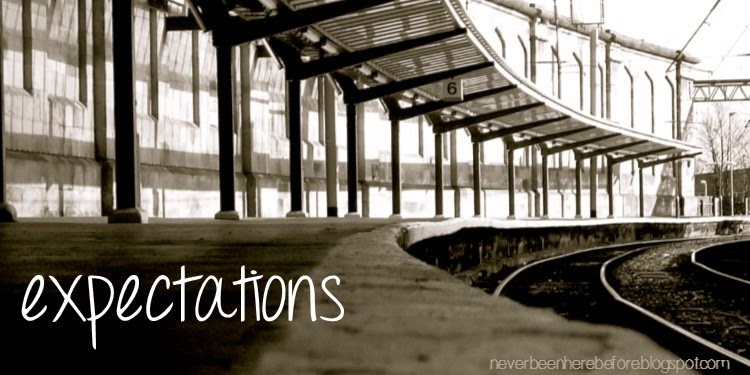on feeling marginalized
mar·gin·al·ize: treat (a person,
group, or concept) as insignificant or peripheral.
Most of my life I’ve felt like a social pariah. In high school, I was never pretty enough or
athletic enough to be accepted. (I wish I’d known then the importance of music
and that it would one day become a career for me, so that I would have felt
less horrible about it. None of the popular kids in school use their athletic ability
or good looks in their career, which makes me sound petty and small, but let’s face
it, all us social pariahs think this way. … if we’re being honest.)
And I really thought the social pariah status would go away
at some point in my life. But then this happened. And two big emotions caught me as a result:
in the moment, complete relief. As my post says, I actually felt a weight lift
from my shoulders when I was told that there was a reason no one understood me
and it wasn’t my entire fault. In the years since, though, I’ve also settled
into a rather unsettling emotion: insecurity.
Now that I understand there is little I can do about my
status as a social pariah, I am far more aware that I ever have been in my life
in how others see me. And since I am the rarest of all personality types,
others see me and go, “huh?” Or others see me and dismiss me, which causes me
to crawl into the dark corners of my heart and ask, “Is it something I am?” all
the while knowing there is little I can do to change how God wired me. All of
this equals a lot of insecurity.
I’ve reached a point in my life that when moments of
marginalization occur towards me, I can step back from the situation and do my
best to be objective. Though my emotions are often intense and deep, I know
this happens in part because of my past experience with being that social pariah.
And some of it now is also because I am a social pariah. It’s just so…
confusing. People don’t get me.
So I process. Part of this is simply trying to give people
the benefit of the doubt and think the best: that they did not intend to make
me feel the way I do. I have to own the feelings I have and figure out which
are justified feelings of marginalization and which simply stem from past
experience.
(I’m starting to wish I’d taken my professor’s advice and taken
the degree in counseling. Perhaps I would be less of a mess.)
But here’s the rub, and I think this is true for just about
everyone: We all just want to be known.
And when you break that down, all that means is that you
want to find your place. You want to belong. I am in a place in my own life
where I just want that to point to Jesus. But I also want to stop these
feelings of sadness, frustration, acceptance, vulnerability and insecurity.
This last May, I was told by a blogger I admire greatly and
love reading, that of just under 100 submissions , I was one chosen to guest
post while he took a break from blogging to write his book. Week after week I watched
a guest post go up… and four months later mine is still not up. I still have
the email where he told me I would be one of the few, so I have to remind
myself I’m not delusional. But there is also part of me that finds herself
feeling like that 14-year old girl who cries and says, “Why is it always me
that is rejected?” Left out? The freak?”
Being vulnerable is never easy; it’s especially difficult for
someone who struggles to suppress her idol of reputation. (Ahem, me.) And what I
hate is that my idol here is most likely A DIRECT RESULT of being a social
pariah; marginalized, and seen as “less than” most of my life.
To be known. What is it, really? How does it happen? Why is
it so important? We want to be people who matter. And it is hard to see that
outside of who we are.



Comments
Thank you for your words.